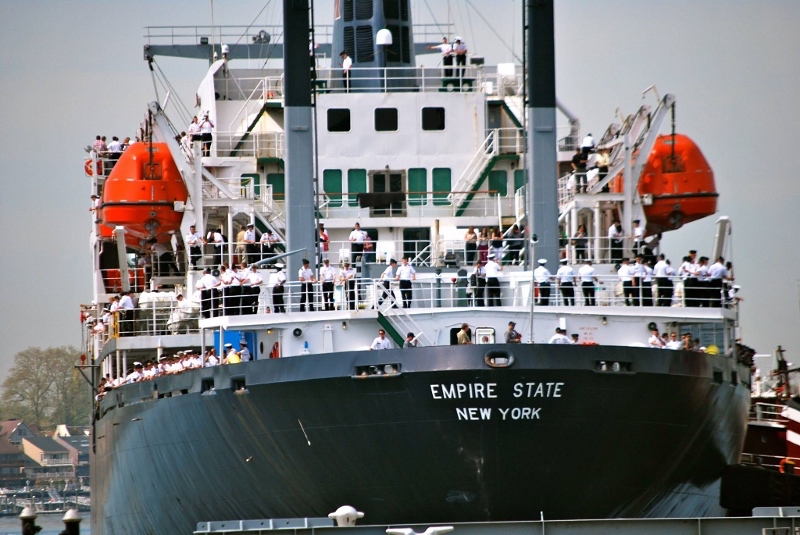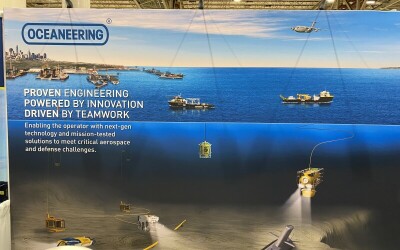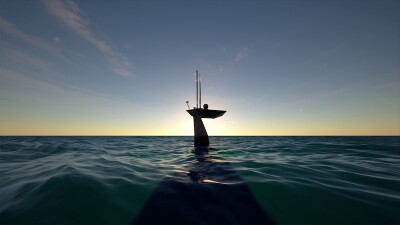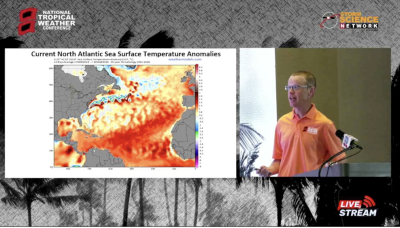The Trump administration is proposing to spend $300 million to replace aging training ships at New York and Massachusetts maritime academies, according to the fiscal 2019 budget released in Washington last week.
These won’t be brand new vessels, as the schools had hoped, but will be refurbished commercial ships that will be far younger than the current training vessels and contain more modern onboard equipment, engines and amenities.
The Empire State VI at SUNY Maritime College in Fort Schulyer, N.Y., and the TS Kennedy at Massachusetts Maritime Academy in Buzzards Bay, Mass., are the oldest training vessels among the six maritime schools, at ages 56 and 52 respectively. The average age of all school ships is 35, and most are powered by obsolete steam engines that no longer meet U.S. emission standards.

The TS Kennedy is the Massachusetts Maritime Academy's training vessel. MMA photo.
In the past, the schools have been assigned ships that are part of the Maritime Administration’s National Defense Reserve Fleet. They are refurbished at a U.S. shipyard and resume new lives as academy training ships, where merchant marine cadets earn the sea hours necessary for their Coast Guard licenses. The ships are also put into service during national disasters, as was the case after hurricanes Katrina, Rita, Sandy, Harvey and Maria.
But there are currently no ships available from the defense reserve fleet, so the Maritime Administration (Marad) will search for two vessels on the international market.
“We will be casting a wide net worldwide in our search,” Adm. Mark Buzby, Marad administrator, told WorkBoat in an interview. “We’ll be looking for a U.S. vessel or a foreign-flag vessel that could meet our requirements.”
He said the international market is flush with a large number of vessels for sale, and the average age is 15 years old. Buzby said the vessel must be in the 500-foot range and able to carry 600 people. Ocean ferries, heavy lift ships and tankers would be suitable ship types.
Buzby said Marad is currently working with the state schools to draw up a set of criteria for a modified training ship, including agreement on size, draft and configuration, among other elements. Marad will hold an “industry day,” to which brokers, shipyards and repairers will be invited to discuss the requirements.
“Ideally we’d like to get sister ships, which would simplify the refurbishing,”said Buzby, a former Navy rear admiral.
The Marad administrator said that if Congress approves the funds this year and the refurbishing is finished on schedule, the first training ship could be delivered in late 2019 or early 2020.
Buying used vessels puts on hold — at least for now — the concept floated a few years ago of building national security multimission vessels (NSMV) for the five state academies. These would be purpose-built training ships with the latest technologies that would allow for the standardization of maritime education and make it easier to find spare parts. Cost for all five NSMVs would be about $1 billion.
“We still have the NSMV design and there’s a high degree of interest in it on Capitol Hill,” Buzby said. But until Congress can come up with the money, buying used ships would be the quickest way to replace the two very old training vessels. “The NSMV option is still out there, but for the moment, this puts us in a good place to get substantially newer ships than we have now,” he said.
Meanwhile, Buzby said Marad continues to make many changes at the U.S. Merchant Marine Academy at Kings Point, N.Y. Renovations of barracks is complete, and a project will start soon to transform Samuels Hall into a world class simulator center. The USMMA alumni association has donated $4 million to rebuilt an athletic field. Efforts are underway to “expand and energize” the academy’s curriculum that covers navigation on the inland waterways, and Buzby added that a few towing companies are helping to strengthen inland instruction.
---





